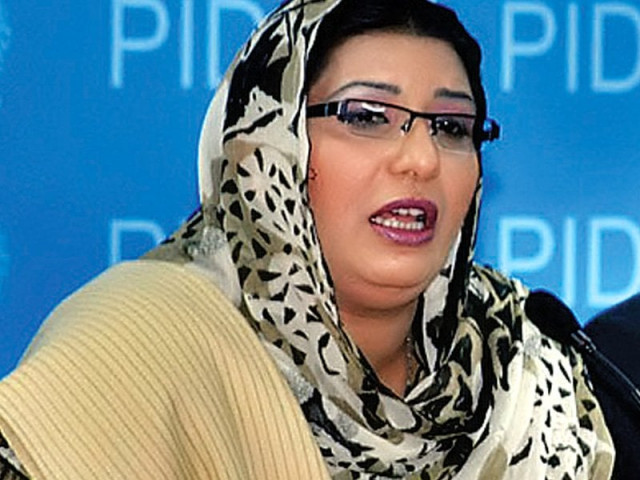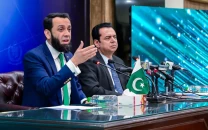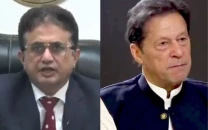Kashmir issue leads PM’s agenda on US visit: Awan
SAPM says Imran exposing Modi’s IOK excesses in diplomatic circles

PHOTO: FILE
She also said that the prime minister was exposing Indian Prime Minister Narendra Modi’s face in diplomatic circles as Modi had violated Kashmiris’ human rights and put regional peace and stability at risk, adding that every eye was shedding tears over Indian atrocities in Indian Occupied Kashmir (IOK).
Addressing a conference on the Kashmir issue and the region’s never-ending humanitarian crisis, she said that the upcoming UN General Assembly meeting was a test case for all human rights organizations that had come from all over the world.
She further said that Modi had challenged regional peace and the media was playing its role of conveying Kashmiris’ voice to the world. She also asserted that Pakistan and Kashmir had the relationship of one body one soul and that intellect was required along with passion for waging a war.
Firdous Ashiq Awan also emphasized that the country faced many challenges at the international level and the nation needed to unite to tackle them, adding that political point-scoring and personal gain must be kept aside and the Kashmir issue prioritized at the current time.
She said some people were talking about a long march and advised them to name it ‘Kashmir March’, adding that the government was ready to take the opposition along on the issue. She also remarked that passion will continue to play a role on the Kashmir issue.
Speaking on the occasion, Parliamentary Kashmir Committee Chairman Syed Fakhar Imam termed the Kashmir issue an incomplete agenda of the division of India.
He accused India of violating Kashmiris’ rights and said children could not go to school because of the IOK curfew.
On British rule in India, he said history showed that the British had imposed their system through the East India Company. He also said that the Indian National Congress had been founded by Allan Octavian Hume while the Muslim League had been founded by the Aga Khan.
He also said that the local political struggle had gained prominence in the subcontinent after World War II. He further said that the Government of India Act had been imposed in 1935 which was the basis for law in south Asia and that not only Pakistan and India but Sri Lanka and Nepal were also affected by the Act.
He contended that the real issue of the subcontinent was a clash between the kingship and the public as the Congress did not wish to see Muslims in power. He said that the Quaid-e-Azam was far sighted as he could imagine the plight of the Muslims after British departure and that, when elections were held in Punjab, the Muslim League had won with a majority.



















COMMENTS
Comments are moderated and generally will be posted if they are on-topic and not abusive.
For more information, please see our Comments FAQ